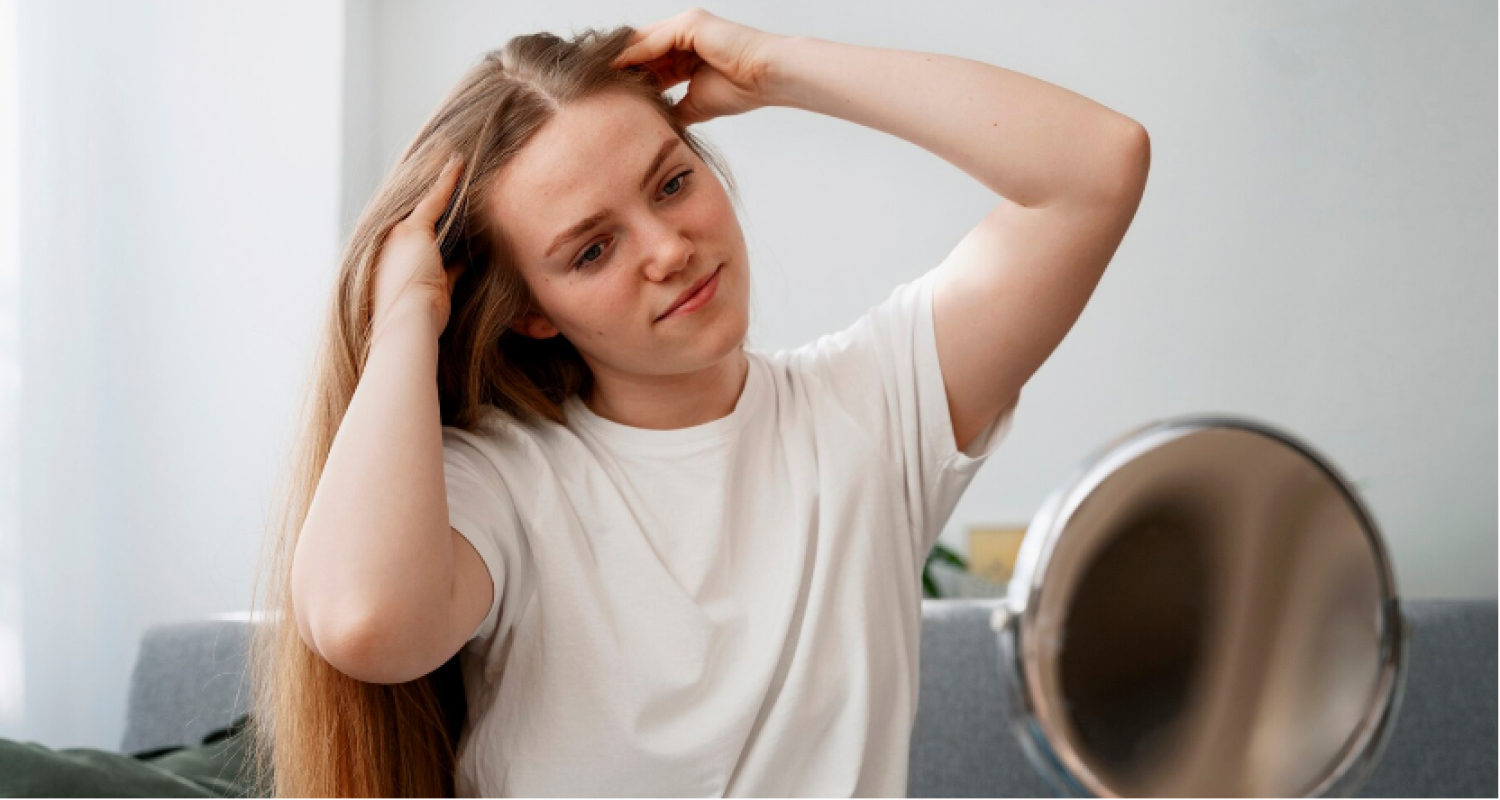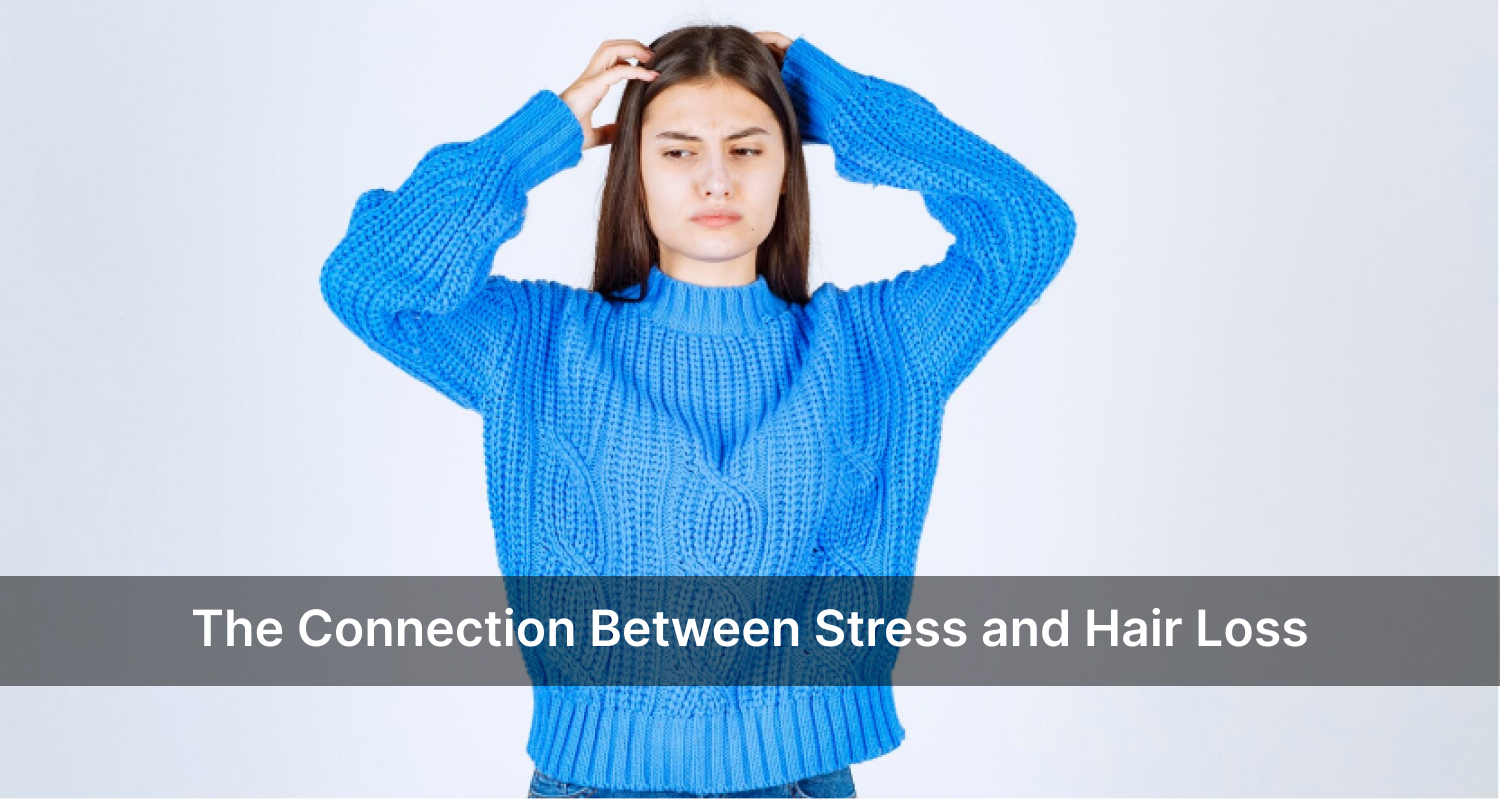Introduction
In today’s fast-paced world, stress has become an almost inevitable part of daily life. Whether it’s work pressure, personal challenges, or global events, stress seems to permeate every aspect of our lives. While some stress can be motivating, chronic stress can have serious implications for our health, including our physical appearance. One of the more distressing consequences of prolonged stress is hair loss.
Hair loss is not just a cosmetic concern; it can have a significant emotional impact, affecting self-esteem and confidence. For many, noticing more hair in the shower drain or on their pillow can lead to a cycle of anxiety, further exacerbating the issue. But what exactly is the connection between stress and hair loss? This article delves into the physiological effects of stress on the body, how it can lead to hair loss, and practical steps you can take to manage both stress and hair health.
How Stress Affects the Body
Stress triggers a complex response in the body, commonly known as the “fight or flight” reaction. When faced with a stressful situation, the body releases a surge of hormones, including adrenaline and cortisol, to prepare for immediate physical action. While this response is helpful in short bursts, chronic stress keeps the body in a constant state of alert, which can lead to various health problems.
One of the most significant impacts of chronic stress is on overall health. Persistent high levels of cortisol, the primary stress hormone, can suppress the immune system, increase blood pressure, and lead to weight gain. Over time, these physiological changes can disrupt the normal functioning of the body, including the hair growth cycle.
Hair growth is closely tied to hormonal balance. When the body is under stress, hormonal fluctuations can occur, affecting the hair’s ability to grow and regenerate. For instance, elevated cortisol levels can push hair follicles into a resting phase, leading to a condition known as telogen effluvium, where large amounts of hair suddenly fall out.

The Link Between Stress and Hair Loss
One of the most common types of stress-related hair loss is telogen effluvium. This condition occurs when a significant number of hair follicles enter the resting phase (telogen) prematurely, resulting in diffuse hair shedding. Telogen effluvium typically becomes noticeable a few months after a stressful event, as the hair in the resting phase falls out.
Stress doesn’t just cause hair to shed; it can also exacerbate existing conditions. For example, individuals with a genetic predisposition to androgenetic alopecia (pattern hair loss) may find that stress accelerates the progression of their condition. In this case, stress acts as a catalyst, speeding up the rate at which hair thins and falls out.
Another key factor to consider is the delayed effect of stress on hair loss. Often, people don’t connect a stressful event with hair loss until several months later. This delay occurs because it takes time for hair to move from the active growth phase into the resting phase and then shed. Understanding this timeline is crucial in identifying stress as a potential cause of hair loss and taking appropriate action.

Preventing Stress-Related Hair Loss
While stress-related hair loss can be distressing, the good news is that it is often reversible. The key to preventing further hair loss and promoting regrowth lies in early intervention and proactive stress management. Here are some strategies you can implement to mitigate the effects of stress on your hair health:
Importance of Early Intervention
Recognizing the early signs of stress-related hair loss and taking action promptly can make a significant difference in the outcome. If you notice increased hair shedding, it’s important to address the underlying stressors as soon as possible. Consulting a healthcare provider or a dermatologist can help determine the cause of your hair loss and guide you towards appropriate treatments.
Lifestyle Changes to Reduce Stress
One of the most effective ways to combat stress-related hair loss is to reduce the overall stress in your life. Here are some lifestyle changes that can help:
- Regular Exercise: Physical activity is a natural stress reliever. It helps lower cortisol levels and stimulates endorphin production, which can improve your mood and overall well-being.
- Healthy Diet: Eating a balanced diet rich in vitamins, minerals, and antioxidants supports both your body and your hair. Foods high in omega-3 fatty acids, biotin, and zinc can be particularly beneficial for hair health.
- Adequate Sleep: Sleep is essential for recovery and stress management. Aim for 7-8 hours of quality sleep each night to help your body repair and rejuvenate, including your hair follicles.

Stress Management Techniques
In addition to lifestyle changes, incorporating stress management techniques into your daily routine can significantly reduce the impact of stress on your hair. Consider the following practices:
- Meditation: Regular meditation practice can help calm the mind and reduce anxiety. Even just a few minutes of mindfulness each day can lower stress levels.
- Mindfulness: Practicing mindfulness involves staying present in the moment and acknowledging your thoughts and feelings without judgment. This can help break the cycle of stress and worry that often accompanies hair loss.
- Therapy: Speaking with a mental health professional can provide valuable support in managing stress. Cognitive-behavioral therapy (CBT) is particularly effective in changing negative thought patterns that contribute to stress.
Building a Hair Care Routine
In addition to managing stress, establishing a consistent and gentle hair care routine is crucial for preventing further hair damage and promoting healthy regrowth. Here are the some tips for building an effective hair care regimen:
Tips for Gentle Hair Care
When dealing with stress-related hair loss, it’s important to treat your hair with care to avoid additional breakage and damage. Consider the following tips:
- Avoid Heat Styling: Excessive use of heat tools like straighteners, curling irons, and blow dryers can weaken hair strands and lead to breakage. Try to minimize their use or use heat protectant sprays when styling your hair.
- Be Gentle When Washing: Use a mild shampoo and avoid scrubbing your scalp too harshly. Pat your hair dry with a towel instead of rubbing it, which can cause friction and damage.
- Limit Chemical Treatments: Coloring, perming, and relaxing can all weaken hair, especially when it’s already stressed. If possible, avoid these treatments or opt for gentler alternatives.
Conclusion
The connection between stress and hair loss is a complex but well-documented phenomenon. While stress is a natural part of life, chronic stress can have serious implications for your hair health, leading to conditions like telogen effluvium and exacerbating genetic predispositions to hair loss. Understanding the relationship between stress and hair loss is the first step toward managing both effectively.
In summary, while hair loss can be a distressing experience, understanding its connection to stress and implementing effective management strategies can help you take back control. By focusing on both your mental and physical health, you can reduce the impact of stress on your hair and enjoy healthier, more resilient hair in the long run. If you have any questions, including a hair loss consultation, please contact us.





